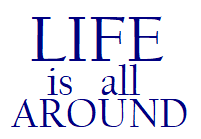Relationships are part of our everyday life. For most people, it is the source of their joy. At the same time, people get hurt the most when a human relationship breaks or deteriorates. A natural question arises: why relationships seem to be causing so much joy and grief at the same time?
Why relationships happen
There appear to be two reasons why we consciously form relationships. From one side, we form relationships out of love and compassion. Because we feel love about another person, we choose to include the other person in our lives and build a relationship with them. The prime motive here is to share our happiness.
On the other hand, we may choose to build a relationship because we need it. In that case, we want to make use of the other person for our benefit. One common example can be a boss-employee relationship. Most of the times, these relationships form because each person wants to use the other for their benefit. The prime motive is to extract happiness.
The difference between the two ways relationships form has to do with how each person feels. If we are joyful and full of love, we decide to create a relationship to share our happiness. On the contrary, if we feel inadequate in some way, we form a relationship in order to extract something out of it and make us happy. In other words, human relationships are formed either out of happiness or in pursuit of happiness.
Approaching relationships
It is possible that a relationship is created out of love but it continues out of necessity. You can think of a couple coming together out of love which fades away with time. After some point, the only thing that keeps them together is a child or even social norms. From one point onwards, their relationship starts to be more of a necessity than an expression of their love or joy.
The above example is not really rare. It looks as if it is the case for a lot of couples in the world. There is not a simple solution for this. Each case is special and different methods may work in each situation. However, one piece of advice could be the way we look at relationships at every given moment. After all, human relationships are not fixed; they are variables; they change all the time.
That being said, we can see relationships as a way to share our happiness, not extract it from the other person. The moment we want to use the other person for our benefit, we downgrade the relationship to a give-and-take transaction. If this happens, it is almost certain that either person at some point will think: “I am giving more, the other is giving less”. At that point on, friction is inevitable.
Infinite relationships
Relationships include a lot more that we may think at a first thought. Indeed, relationships between humans is the one type of relationships that we care the most. However, this is not the only type. We may also form relationships with animals or even inanimate things like places. For example, any one of us may have certain feelings towards the home that we grew up or a city that we lived in.
A great example is trees. Although we tend to forget, the relationship we have with them is shown to us since primary school. We exhale carbon dioxide which a tree inhales. Then the tree exhales oxygen which we inhale. I cannot think of a more vital relationship we humans have. Still, we go on cutting trees and burning entire forests as if we forgot where we take a lot of our oxygen from.
For each relationship that we hold, either it is with a human, a tree or a place, the way we approach that relationship can make a big difference to both us and the other party. You can experiment and see. When you include the other side, either that is a human or a tree, as part of yourself, then that relationship blossoms.
Take away:
- Human relationships are formed either out of happiness or in pursuit of happiness. You can choose how to shape your own relationships
- The moment we want to use the other person for our benefit, we downgrade the relationship to a give-and-take transaction.
- When you include the other side, either that is a human or a tree, as part of yourself, then that relationship blossoms.



